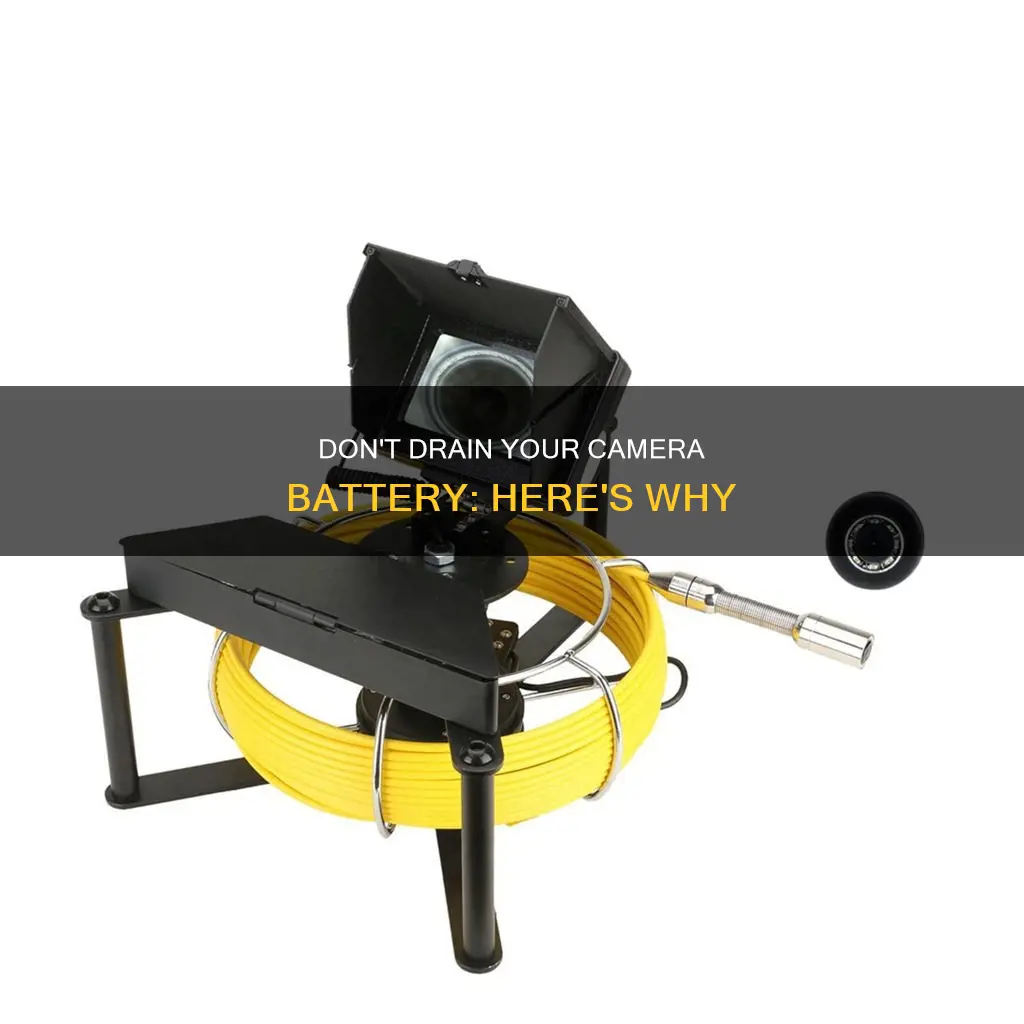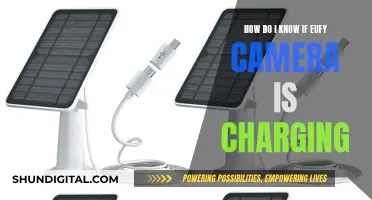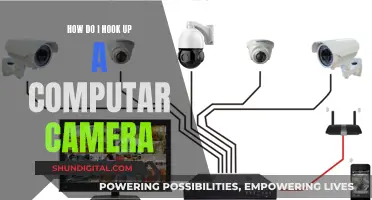
There are a few schools of thought on whether or not you should completely run down a camera battery before recharging it. Some people believe that you should drain the battery before recharging to ensure that it lasts as long as possible, while others argue that modern rechargeable batteries perform just fine on frequent charging-discharging cycles. So, which camp is correct?
It turns out that you don't need to completely drain your camera battery before recharging it. In fact, doing so may even reduce the lifespan of your battery. Rechargeable batteries tend to lose power the more you use them, so it's generally advisable to recharge them frequently and avoid letting them drain completely. Additionally, exposing batteries to heat sources or direct sunlight can cause a rapid loss of capacity, so it's best to store them in a cool, dry place. By following these simple guidelines, you can extend the life of your camera battery and ensure that it's always ready to capture that perfect shot.
| Characteristics | Values |
|---|---|
| Should I completely run down my camera battery? | No, it is a myth that you need to completely drain your battery before recharging it. |
| How to extend the life of my camera battery? | Turn off your camera when not in use, remove batteries when not in use, keep spare batteries, use optical viewfinder instead of LCD, avoid using flash, reduce LCD brightness, charge-discharge frequently, and store batteries in a cool and dry place. |
| Does the camera consume power when turned off? | Yes, the camera consumes a small amount of power when turned off, so it is recommended to recharge the battery at least once a month. |
What You'll Learn

Cameras use battery power even when turned off
It is a common misconception that electronic devices do not use any power when they are turned off. In reality, many devices, including cameras, continue to draw a small amount of power even when they are switched off. This is because certain components and functions still need to remain active or operational.
For instance, Sony cameras are known to consume a minimal amount of battery power in their off mode to maintain specific functions, such as memory storage, the internal clock, and various settings. This allows users to quickly power on the camera and resume shooting without resetting their preferred configurations. Additionally, some cameras may perform background tasks like sensor cleaning or firmware updates while turned off, which also require a small amount of power.
The amount of power consumed in standby or off mode is generally very low compared to when the camera is actively in use. However, it is important to note that the exact energy usage can vary depending on the specific camera model and its settings. For example, cameras with Wi-Fi or GPS capabilities may continue to use these functions in the background, potentially resulting in more significant battery drain when the device is turned off.
To optimise battery life, it is generally recommended to turn off your camera when not in use. Additionally, removing the batteries when the camera is not in use and storing them in a cool, dry place can help preserve their lifespan. It is also beneficial to carry spare batteries or utilise external power sources, such as AC adapters or power banks, to ensure uninterrupted shooting, especially during extended periods of use.
Furthermore, it is worth mentioning that repeatedly turning a camera on and off can cause unnecessary drain. Each time the camera is powered on, the processor runs the necessary software, the optics slide out, and the LCD screen turns on, consuming more power than if the camera were left in standby mode. Therefore, it is advisable to turn off your camera only when necessary and to utilise power-saving features when available.
GoPro 6 Black: Charging and Camera Functionality
You may want to see also

Batteries should be removed if the camera is unused for long periods
It is advisable to remove batteries from a camera when it is not in use for an extended period. Leaving the batteries in the camera for a week or two between uses will be no problem. However, if you plan to leave your camera idle for six months to a year, you might want to take the batteries out.
Rechargeable batteries, such as those commonly used in cameras, will lose power over time, even when the camera is turned off. Therefore, if you are not planning on using your camera for a while, it is best to remove the batteries and store them in a cool, dry place. This will help to extend the life of your batteries and ensure that they are ready for use when you need them.
Additionally, some cameras continue to draw a small amount of power even when they are turned off, which can drain the batteries over time. By removing the batteries when the camera is not in use, you can prevent this from happening.
It is also worth noting that different camera models may have varying power consumption rates when turned off, so it is essential to refer to your camera's user manual for specific recommendations.
The Cost of Capturing Moments: Camera Charging Explained
You may want to see also

Frequent charging is better than full discharge
Lithium-ion batteries, which are used in most modern cameras, do not need to be fully charged or discharged. In fact, doing so can reduce their lifespan.
Lithium-ion batteries work by moving lithium ions from one electrode to another. The more ions move, the more stress is put on the electrodes, and the shorter the battery life.
Charging a lithium-ion battery to full capacity and letting it run down to empty puts more stress on the battery than partial charges and discharges.
Charge your camera battery whenever it's convenient. You don't need to wait for it to reach a certain percentage before charging it again. In fact, frequent, partial charges are better for the battery than full charges and discharges.
However, you should avoid letting your camera battery fully discharge. If it does, the cells might become unstable and overheat.
To prolong your camera battery's life, keep it charged between 20% and 80%. Avoid letting it drop below 20% too often, and don't leave it plugged in once it reaches 100%.
It's also a good idea to keep at least two camera batteries on hand. That way, you can use one while the other is charging.
Charging the Lumix LX5: A Step-by-Step Guide
You may want to see also

Batteries should be stored in a cool, dry place
It is a myth that you need to completely run down a camera battery before recharging it. In fact, most modern rechargeable batteries perform well when charged frequently. However, there are some important guidelines to follow to ensure your batteries are stored correctly and remain in good condition.
Firstly, batteries should be stored in a cool, dry place. Avoid exposing batteries to direct sunlight or heat sources, as intense heat can cause the fluid in the battery to evaporate, leading to battery failure. Similarly, cold temperatures can form condensation and erode batteries over time. Therefore, it is best to store batteries at room temperature or slightly cooler, in a climate-controlled environment without significant heat fluctuations.
Additionally, it is important to keep batteries away from metal objects and other batteries to prevent short-circuiting. Store batteries in their original packaging or a designated container, ensuring that the terminals do not touch. Keep batteries secure and protected from being punctured or crushed during storage.
By following these guidelines, you can extend the life of your batteries and ensure they are always ready for use.
Charging the HP R847: A Step-by-Step Guide
You may want to see also

Camera settings can be adjusted to save power
Another way to save power is to avoid using the flash. Instead, fiddle with exposure and/or ISO settings. You can also avoid using the LCD viewfinder, which can be a real power hog. Instead, use the optical viewfinder if your camera has one.
Additionally, you can reduce the brightness of the LCD screen. If your camera has a Real Time control setting, turning it off will also save power. When Real Time is on, the camera consumes more power because it's always connected to the cellular network.
Trail Camera Power: Battery or Solar?
You may want to see also
Frequently asked questions
It is a myth that you need to completely drain your battery before recharging it. Modern rechargeable batteries run fine on frequent charging-discharging cycles.
There are several ways to extend the life of your camera battery. Firstly, remember to turn off your camera when not in use. Additionally, avoid using the flash and reduce the brightness of your LCD screen.
It is recommended to recharge your camera battery at least once a month. Batteries self-discharge, so it is important to keep them charged, especially if you are not using them for extended periods.







